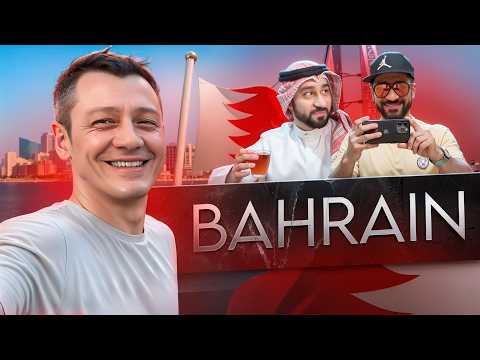
In the constellation of nations that make up the Gulf Cooperation Council (GCC), Bahrain stands out as a beacon of relative liberalism and progressive governance. Despite its compact size, this island nation has taken strides that set it apart from its neighbors, fostering a socio-political environment that balances tradition with modernity. Here’s an exploration into how and why Bahrain is perceived as the most liberal state in the Gulf region.
#### Historical Context and Political Landscape
Bahrain gained independence from British rule in 1971, and since then, it has embarked on a path somewhat different from other Gulf states. It declared itself a kingdom in 2002 under King Hamad bin Isa Al Khalifa and enacted a new constitution that paved the way for legislative reforms and elections. Unlike many of its neighbors, Bahrain established a bicameral parliament which includes an elected lower house, although political power still largely rests with the ruling family.
The country’s political evolution, while marked by periods of unrest and calls for greater democracy—most notably during the Arab Spring in 2011—has led to significant liberal reforms compared to other GCC nations. For instance, Bahrain has allowed greater political participation and has been more open to dialogue between the government and opposition groups though it has faced criticism regarding human rights issues.
#### Economic Liberalization
Economically, Bahrain was one of the first Gulf states to diversify away from oil dependence. Its early investment in banking and tourism sectors are testament to its forward-thinking economic strategies. The Kingdom is recognized as one of the most diversified economies in the region; it serves as a financial hub with one of the freest economies in MENA according to various economic freedom indices.
Moreover, Bahrain provides a more liberal business environment compared to many other GCC countries. It offers greater ownership rights and fewer restrictions on foreign businesses, which encourages international investments. This open economic policy complements its relatively progressive labor laws that protect workers’ rights including those of expatriates who form a substantial part of its workforce.
#### Social Reforms and Cultural Openness
Culturally, Bahrain is known for its openness. While Islam is the state religion, Bahraini society is relatively pluralistic. The government officially recognizes several Christian denominations as well as Hinduism, Buddhism, Baha’ism among others; this religious tolerance indicates a level of societal flexibility not seen in more conservative GCC states.
Women’s rights have also seen significant progress; women participate actively in all aspects of Bahraini life including politics where they hold legislative seats actively partaking in governance matters—a notable advancement not universally seen across Gulf societies.
In terms of media freedom too, although not entirely unfettered,Bahrain’s landscape is comparatively liberal allowing more room for open discussion than might be found elsewhere within its regional cohort.
#### Challenges Remain
Despite these advancements towards liberalism compared to neighboring countries,Bahrain still faces challenges including allegations regarding suppression of dissent particularly relating to Shia communities within Sunni-ruled Kingdoms impacting sectarian balance.Some international bodies have criticized these actions urging further reforms toward genuine dialogue between differing political groups within Kingdom.However,the path toward greater liberalism isn’t always linear or free from obstacles but requires continuous nurturing faced with complex socio-political dynamics at play.
#### Conclusion
Bahrain indeed exemplifies some aspects what might be termed liberal within context especially when compared other members GCC.Its journey towards combining tradition with elements modern governance economics cultural openness sets apart showcasing complexities navigating progress amidst deep-rooted traditional societal norms.Through continued emphasis reform dialogue perhaps can further solidify status emblematic evolving liberalism within conservative region thereby offering model others may look inspiration or emulation.
